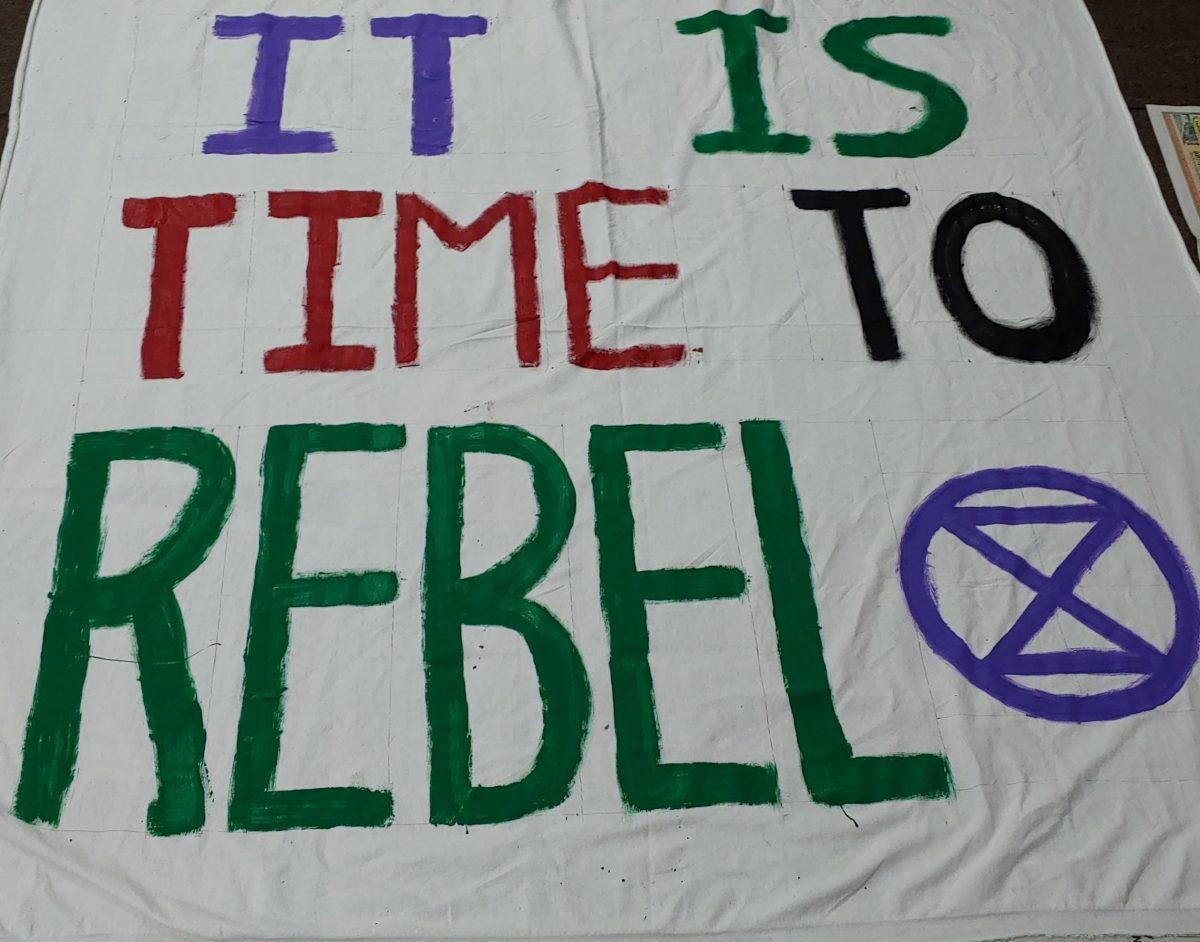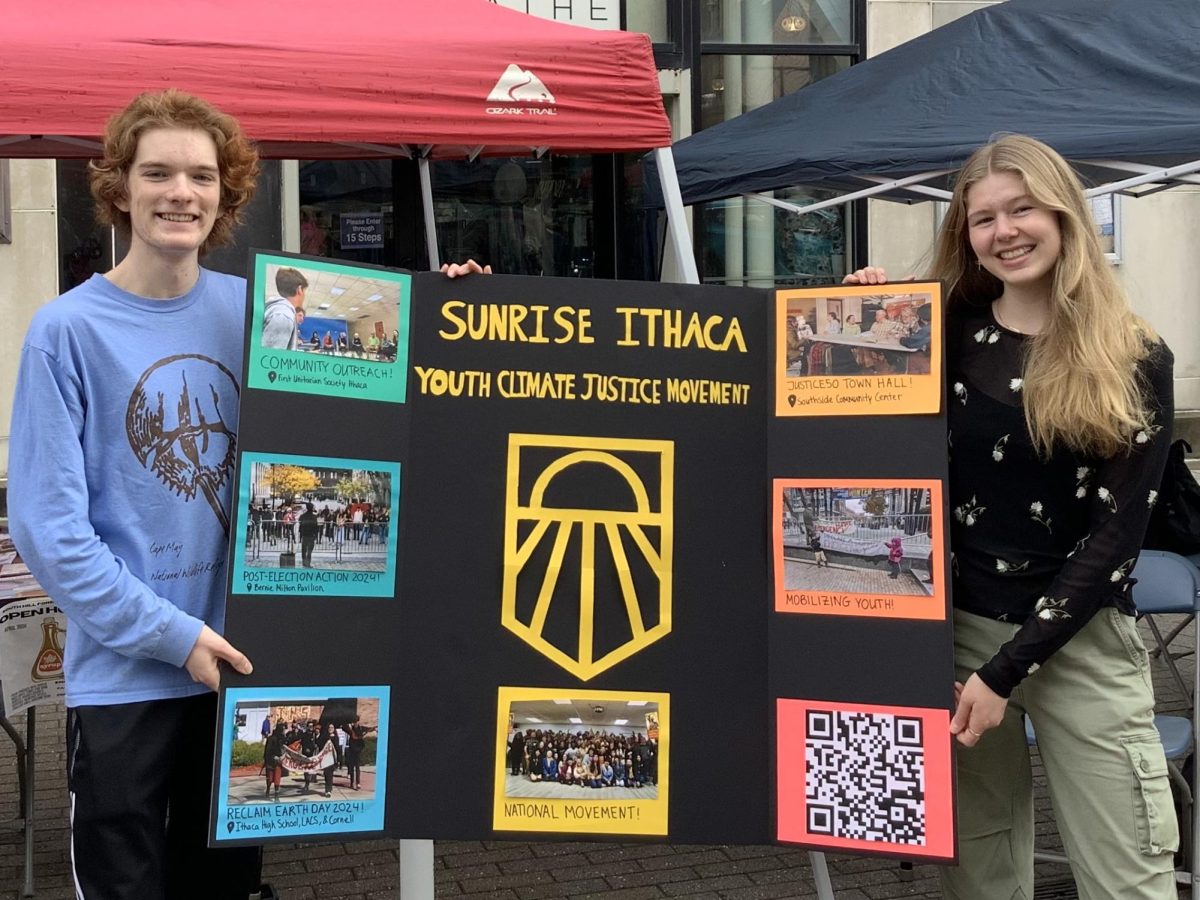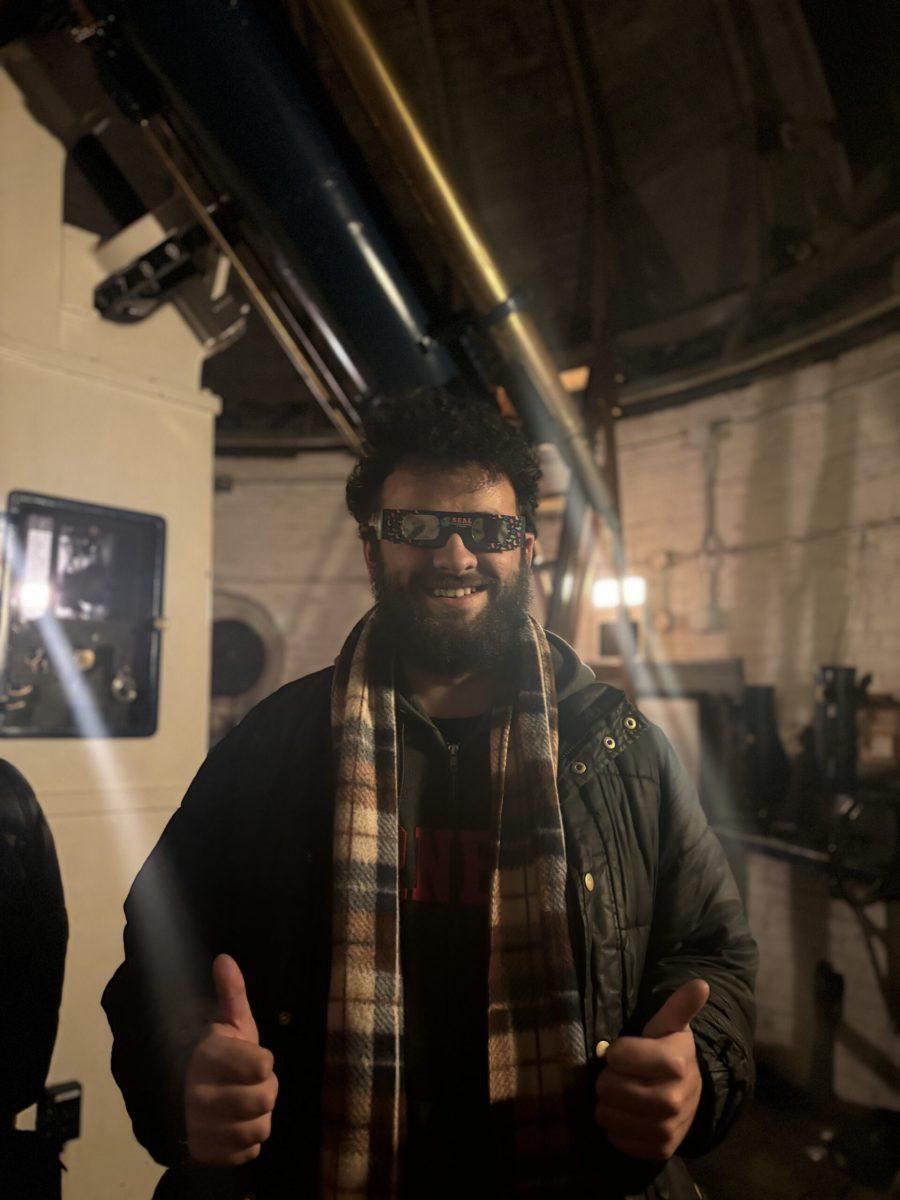When Art Weaver left his position at the wind energy harvesting company he started, he never imagined that just a short time later, he would form one of the fastest-growing environmental activist groups in Ithaca today. Weaver, who has a background in molecular biophysics, quit the wind farm this past August, choosing instead to become a “full-time activist.”
After listening to a talk by Gail Bradbrook, one of the co-founders of the global environmental movement Extinction Rebellion, Weaver decided to adopt the principles of the movement and start an Extinction Rebellion chapter in Ithaca. Called Extinction Rebellion Ithaca, or XR Ithaca, the organization has grown from just 25 members in August, to over 200 members as of late October, according to Weaver.
“There is a core group within that 200; most of the 200 just get our announcements email, and updates about stuff,” said Weaver. “But the core group is maybe 30, 40, 50 people who are serious and who are actually devoting some time to this.”

The word “serious” is perhaps the best way to describe the Extinction Rebellion movement as a whole, as its goal is to stress the severity and urgency of the climate crisis. Extinction Rebellion was formed in the UK in October, 2018, and began as a small group of British academics who met to launch a Declaration of Rebellion against the British Government. At that initial rally in London, over 1,500 protesters came out in support of Extinction Rebellion and its platform.
Since then, the group has expanded to over 130 chapters, including chapters in major cities such as Berlin, Paris, Dublin, New York, and Seattle.

To date, the actions taken by Extinction Rebellion chapters have primarily taken the form of nonviolent civil disobedience. This has included demonstrations in which members have blocked off intersections, roadways, and airport runways, as well as actions involving members gluing themselves to buildings, trains, and buses.
These demonstrations culminated in the two week long International Rebellion which started Oct. 7.
“Much larger kinds of actions that truly do disrupt everyday life are the kinds of things that get the attention of the media,” Weaver said. “We have all see what kind of actions have been taken in Europe, especially in capital cities… that’s what we need to get to.”

Despite Weaver’s wishes, the Ithaca group has not yet adopted the more radical forms of protest taken up by its European counterparts.
XR Ithaca member Alyssa Marcy said that this is because of the group’s unique way of organizing. “Horizontal organization” as the group calls it, is the organizational structure adopted by Extinction Rebellion in general, and does away with the traditional notion of leaders and followers. While this provides equality in decision making, Marcy says it also makes agreeing on an action difficult.
“It’s hard to have a horizontal, decentralized organization with a ton of people,” she said. “It’s just a lot of voices to navigate.”

However, Marcy does point out that as XR Ithaca evolves, organizing is getting easier, which has culminated in smaller, community based events such as the Green Commute, which advocates for more environmentally friendly travel to and from work.
Even so, XR Ithaca has been slow to adopt the larger forms of nonviolent direct action that European groups have made a name doing. XR Ithaca member Jackie Dresser specializes in legal support, and said that part of the reason for this is the amount of training that has to be done prior to any action where people could get arrested.
“People need to think about ahead of time how they are going to diffuse situations,” Dresser said. “How they are going to not engage in anger and fear but rather answer that with love and welcoming and inclusiveness. And that’s difficult when someone is yelling in your face or you’re being dragged into a cop car.”
The potential for violence is certainly a concern among XR Ithaca members, especially after a recent Extinction Rebellion protest in London turned violent causing a split in the organization, but Dresser says that the key to overcoming this is creating events in which people feel welcome.
“The slow and steady pace of XR Ithaca is going to really help knit the community together through acts rather than create the us and them perspective that is dividing our country,” she said. “How can we create actions that are inclusive, that are welcoming, and that people can walk by, take a video, show it to their friends and say ‘Look at this cool thing I saw today’.”

While the goal of XR Ithaca is to maintain a nonviolent structure, all three members of XR Ithaca that were interviewed were hesitant to say that violence is unavoidable. Weaver said that violence can always be a possibility when organizations like Extinction Rebellion grow large. Marcy said that violence might unfortunately be the next step if the climate crisis continues, a sentiment which was echoed by Dresser.
“We are saying that the rules aren’t working, and we need to change. We’re not going to wait for permission to do that,” Dresser said. “And if violence stems from that, then compared to the violence we are going to see when we are looking at tens or hundreds of millions of climate refugees… well you can’t even compare it. You can’t even imagine the violence that’s going to come about when everyone is desperate.”
Header Photo by Alyssa Marcy/XR Ithaca



















